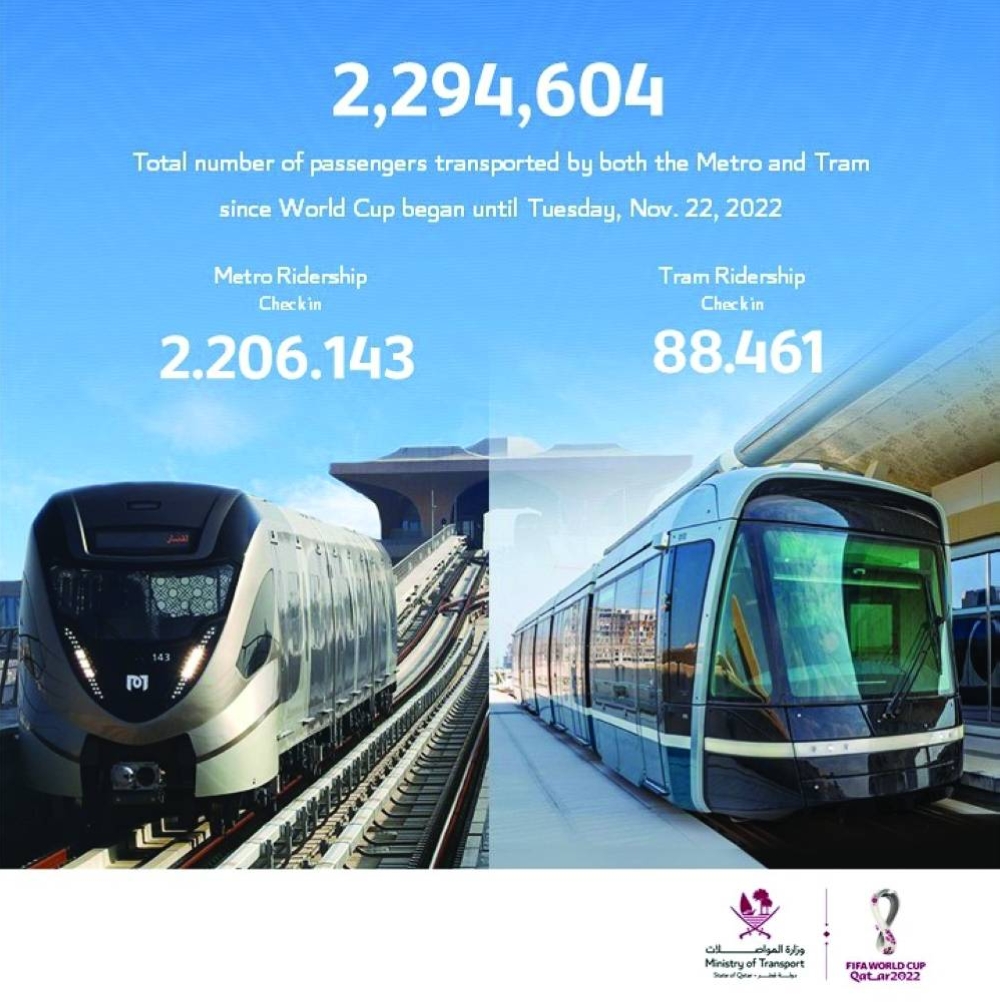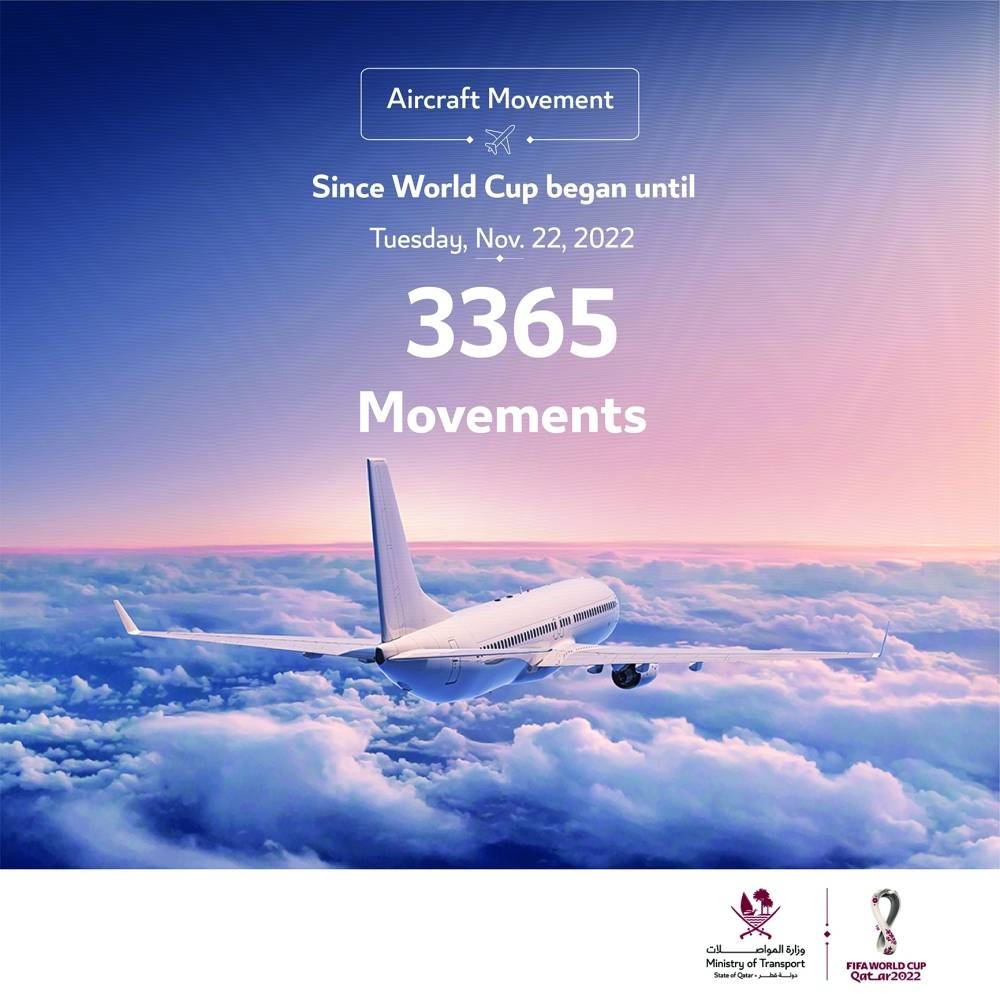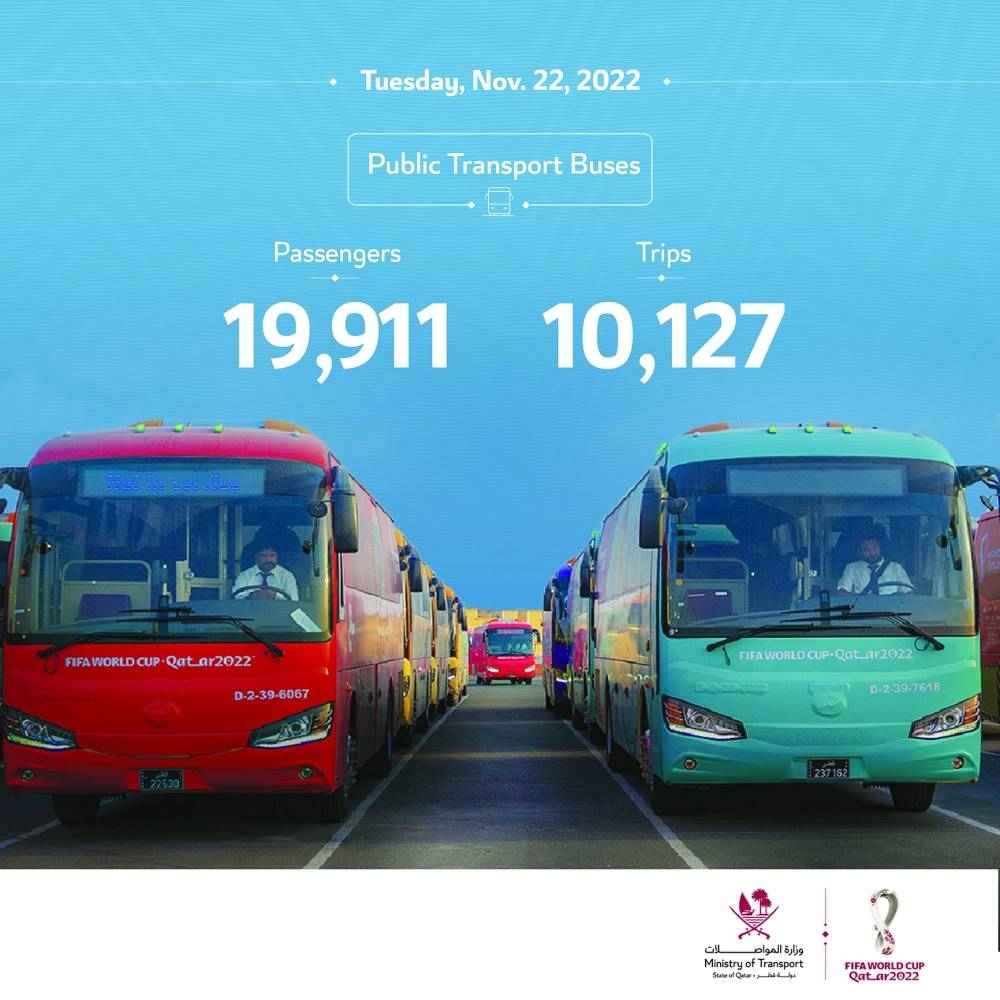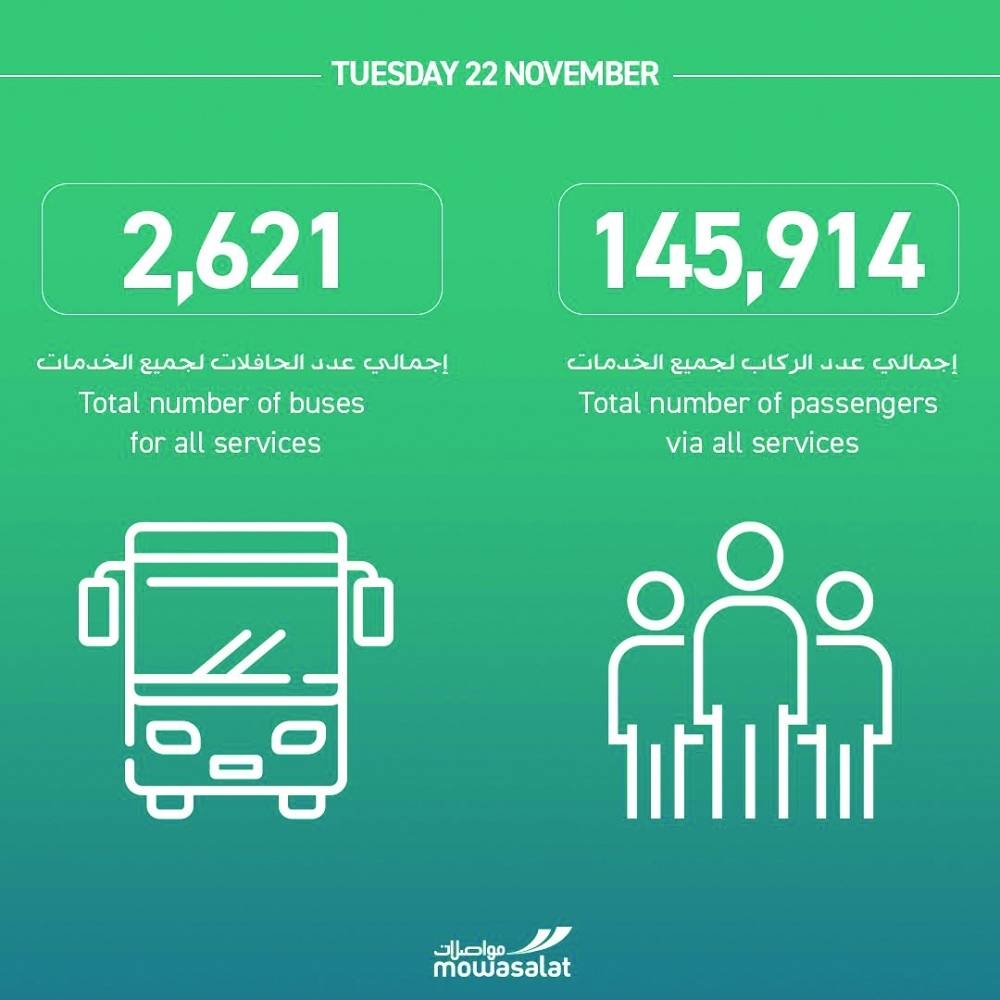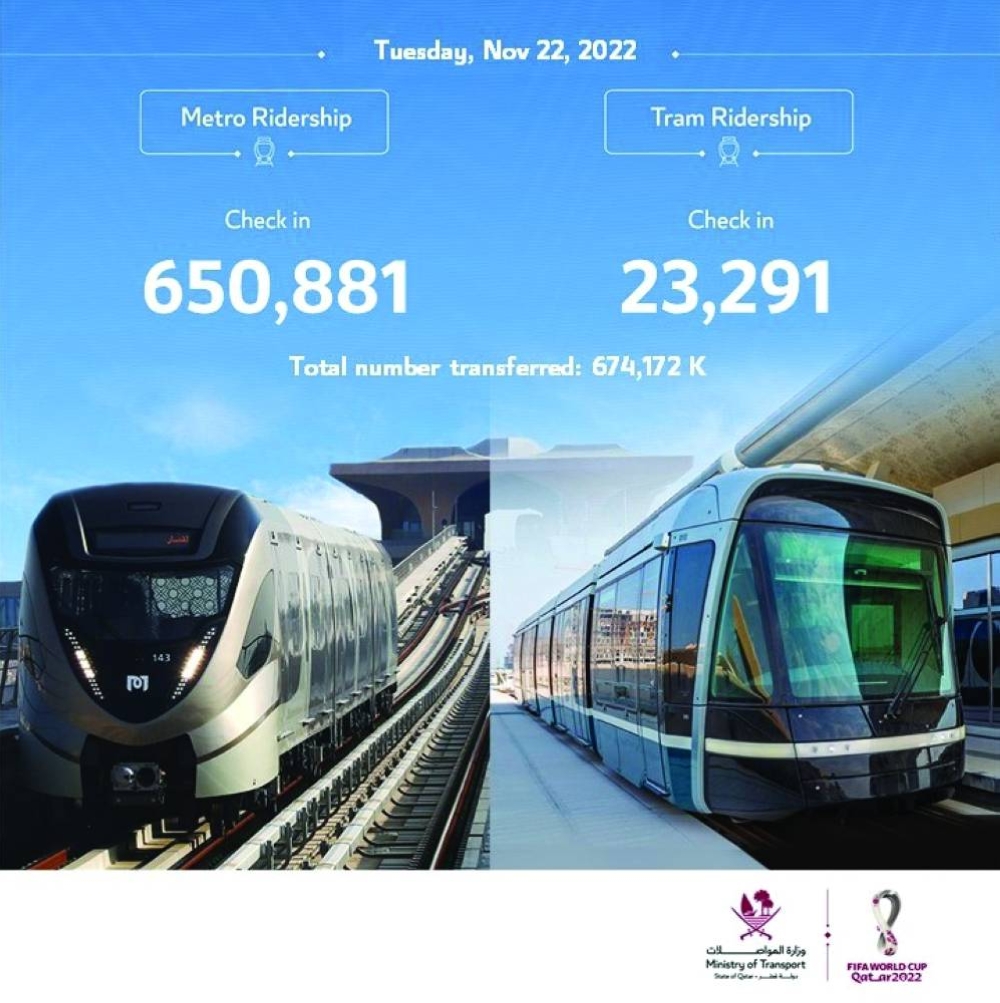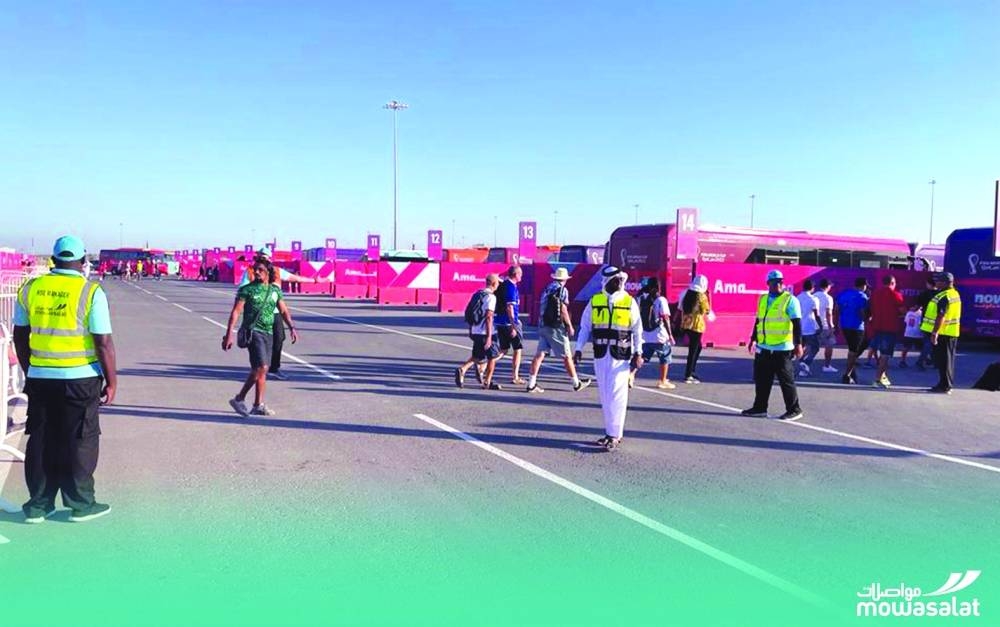The public transportation continues to impress the fans with effective operations around the clock with the highly trained team while serving stadiums, airports and tourism destinations with the buses, metro, tram and taxis. The Ministry of Transport (MoT) on Wednesday tweeted that Doha Metro and trams at Lusail, Education City and Msheireb handled 2,294,604 passengers after the World Cup began. A total of 674,172 passengers were transported by both the Metro and Tram on Tuesday. On Tuesday, a total of 9,662 passengers used the Msheireb Tram and the Education City Tram while exploring Doha and visiting various spots.
MoT said 3365 air movements have been recorded at both Hamad International Airport (HIA) and Doha International Airport (DIA) since the World Cup began on November 20. More than 900 air movements, according to MoT figures, were recorded at both HIA and DIA on Tuesday, the third day of the World Cup. Meanwhile, according to figures, released by Mowasalat (Karwa), 10,127 public bus trips transported 19,911 passengers on Tuesday. The operations were carried out with more than 2600 buses for transporting almost 146000 fans during the thor day of the tournament.
Karwa has deployed vehicles that meet the transport needs of the fans arriving at Doha International Airport (DIA) and Hamad International Airport (HIA). Bus services to stadiums and other tourism places are available from the airports while Karaw has deployed an optimum number of taxis and limousines at the airports. Karwa on Tuesday transported fans from Saudi Arabia from Abu Samra border to Doha and Lusail Stadium where the Saudi national team faced Argentina in the first Group C match of the tournament.
The company has intensified its operational preparations for the World Cup while mobilising its fleet with specialised technical teams to ensure a comfortable and smooth transportation experience for the tournament.
About 4,000 buses will be operated during the tournament, of which about 3,000 are dedicated to transporting fans, including more than 800 fully electric buses that operate with zero carbon emissions.
